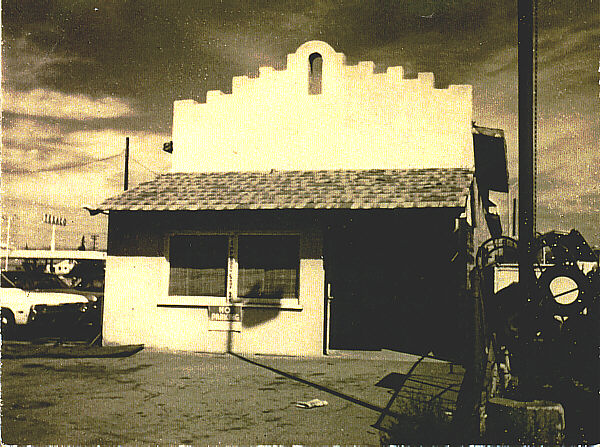
Acting to provide the market certainty that will propel investment in California’s thriving clean-energy economy, an Assembly committee on Monday approved Senator Fran Pavley’s SB 32, a measure that would extend in law the state’s targets to reduce greenhouse gas emissions through 2030.
The Assembly Natural Resources committee voted 6-2 to advance SB 32, which would set a target of reducing GHG emissions to 40 percent below 1990 levels by 2030. The target codifies the standard established in Gov. Jerry Brown’s Executive Order B-30-15 issued last year, builds upon the existing 2020 target established by the state’s Global Warming Solutions Act of 2006, and continues California’s leadership in fulfilling the global commitment to limit temperature rise to below 2 degrees Celsius.
“By providing a clear market signal to businesses and investors, SB 32 will help the state continue to lead the world in creation of good-paying jobs building the technologies and resources necessary to prevent the worst consequences of climate change,” Pavley said. “It gives businesses and industry a realistic goal that we’re already on track to meet.”
SB 32 has been significantly changed since it passed the Senate last year. Responding to concerns expressed by some in the building industry about the unknowns of establishing a target so far into the future, Senator Pavley has removed a separate 2050 target.
In addition, Senator Pavley has worked to thoughtfully engage her colleagues in the Assembly and create a bridge to the next generation of leaders on climate change and energy. As a core component of this effort, Senator Pavley has worked closely with members of the Assembly, in particular Assemblyman Eduardo Garcia, to ground the state’s climate pollution policies in principles of accountability, transparency and equity.
The Assembly has become actively engaged in creating a comprehensive approach to reducing climate pollution while providing greater legislative oversight to the process and also ensuring that disadvantaged communities hardest hit by the adverse health impacts of poor air quality will also disproportionately benefit most from programs and policies to reduce and mitigate the effects of greenhouse gas emissions.
The transparency and equity provisions previously included in SB 32 have now been placed in Assemblyman Eduardo Garcia’s AB 197. The result is a comprehensive, bi-cameral approach to coordinate climate policy with the imperatives of equity and social justice.
“It is imperative that we craft proactive climate policies to ensure that people of color and all those living in disadvantaged communities are prioritized as we counter and mitigate the effects of climate change,” said Assemblyman Garcia. “Our policies must place those most harmed by climate pollution at the center. Senator Pavley and I are working together to identify how best we can strengthen climate policies to improve the quality of life for all Californians.”
AB 197 is scheduled to be heard Wednesday by the Senate Environmental Quality Committee.
The approach of combining emissions reduction targets with equitable treatment of disadvantaged communities was praised in testimony before the committee on Monday.
“Climate change will hit — and is already hitting — low-income communities and communities of color first and worst,” said Quentin Foster, policy advocate for the California Environmental Justice Alliance. Citing research by multiple academics, Foster pointed out that, “The people living closest to significant GHG emitters are disproportionately people of color.”
Foster called SB 32 “a critical piece of a two-part policy package.”
Carlos Velasquez of Stockton testified that the state’s climate policies made it possible for him to purchase a hybrid-fuel car to replace his old, polluting vehicle. “It feels good that we’re not polluting the air,” he said. “We can reduce pollution and improve the quality of life in our community.”
Senator Pavley and Assemblyman Eduardo Garcia were among the state leaders representing California in its delegation to the UN Climate Summit in December. The summit provided an opportunity for state policymakers to discuss ways to work together to advance the state’s climate policies.
Pavley noted that passage of SB 32 would bring the targets for all economic sectors in line with 2030 target for the electricity sector established last year with the enactment of SB 350. That law requires 50 percent of electrical power to be generated from renewable sources by 2030.
The electric sector has been a shining example for the rest of the economy, she said, in showing how to create jobs and leverage the state’s innovation in new technologies like solar and wind power. SB 32 will bring similar innovation and technology to bear economy-wide, in the design and manufacture of hybrid, electric and alternative-fuel cars, and in the production of biofuels such as the clean-burning jet fuel now produced at the AltAir Paramount facility that is used by United Airlines to power flights between Los Angeles and San Francisco.
With the committee’s action, SB 32 is now eligible to be considered by the full Assembly in August, after the Legislature returns from its summer recess.
Like this:
Like Loading...
Related




 Tweet This
Tweet This Facebook
Facebook Digg This
Digg This Bookmark
Bookmark Stumble
Stumble RSS
RSS


























REAL NAMES ONLY: All posters must use their real individual or business name. This applies equally to Twitter account holders who use a nickname.
0 Comments
You can be the first one to leave a comment.